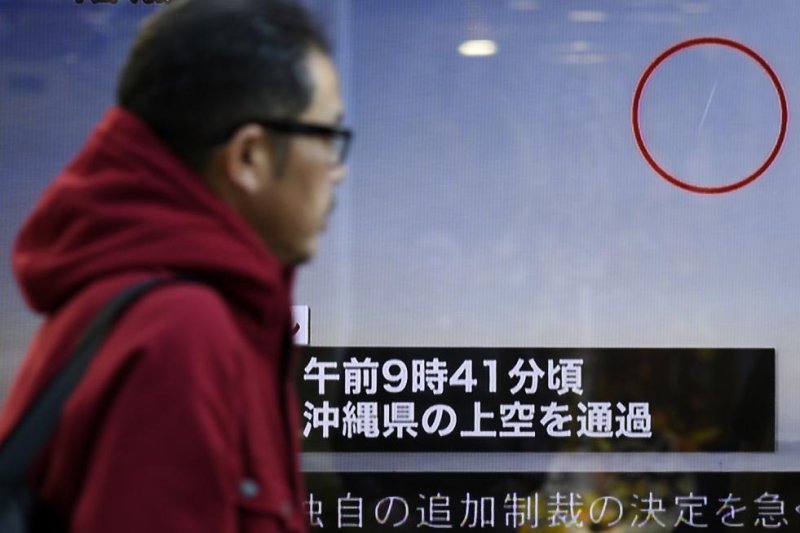North Korea's tests of ballistic missiles is prompting Japan to consider launching an early-warning satellite into space. Photo by Franck Robichon/EPA
June 12 (UPI) -- Japan is considering the deployment of early warning satellites designed to detect ballistic missile launches, according to a Japanese press report.
Sankei Shimbun reported Wednesday the Japan Aerospace Exploration Agency, or JAXA, is looking into tests of infrared sensors for early-warning satellites in 2020.
The missile defense alarm system could provide advance notice of North Korea ballistic missile launches. In April and May, Pyongyang tested short-range projectiles in multiple rounds.
Tokyo's aerospace agency is planning to install the infrared sensor on an Advanced Optical Satellite, or ALOS-3, which can be launched on a H2A rocket -- an active expendable launch system operated by Mitsubishi Heavy Industries.
The sensors use advanced semiconductors with sensitivity to two infrared wavelengths, according to the Sankei.
Japan is expected to test the sensor until 2024. After the sensor is tested, Tokyo will then decide whether it will launch a rocket to place an early-warning satellite in orbit.
The ALOS-3 is an earth observation satellite capable of seeing activities from orbit at a distance of more than 400 miles above Earth.
Japan is also planning to build a database from the infrared tests; the United States is already constructing a similar database, identifying the types of ballistic missiles North Korea has fired, based on their infrared characteristics.
Japan's satellite plans are being worked on as Prime Minister Shinzo Abe begins his state visit to Iran.
The BBC reported Wednesday Abe is the first Japanese prime minister to visit Iran in four decades.
Abe could try to ease tensions between the United States and Iran, as the two countries have disputed over a nuclear deal that was reached in 2015 during the Obama administration -- a deal from which the United States withdrew in 2018.
Abe is expected to meet supreme leader Ayatollah Ali Khamenei on Thursday.















